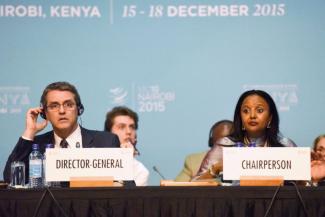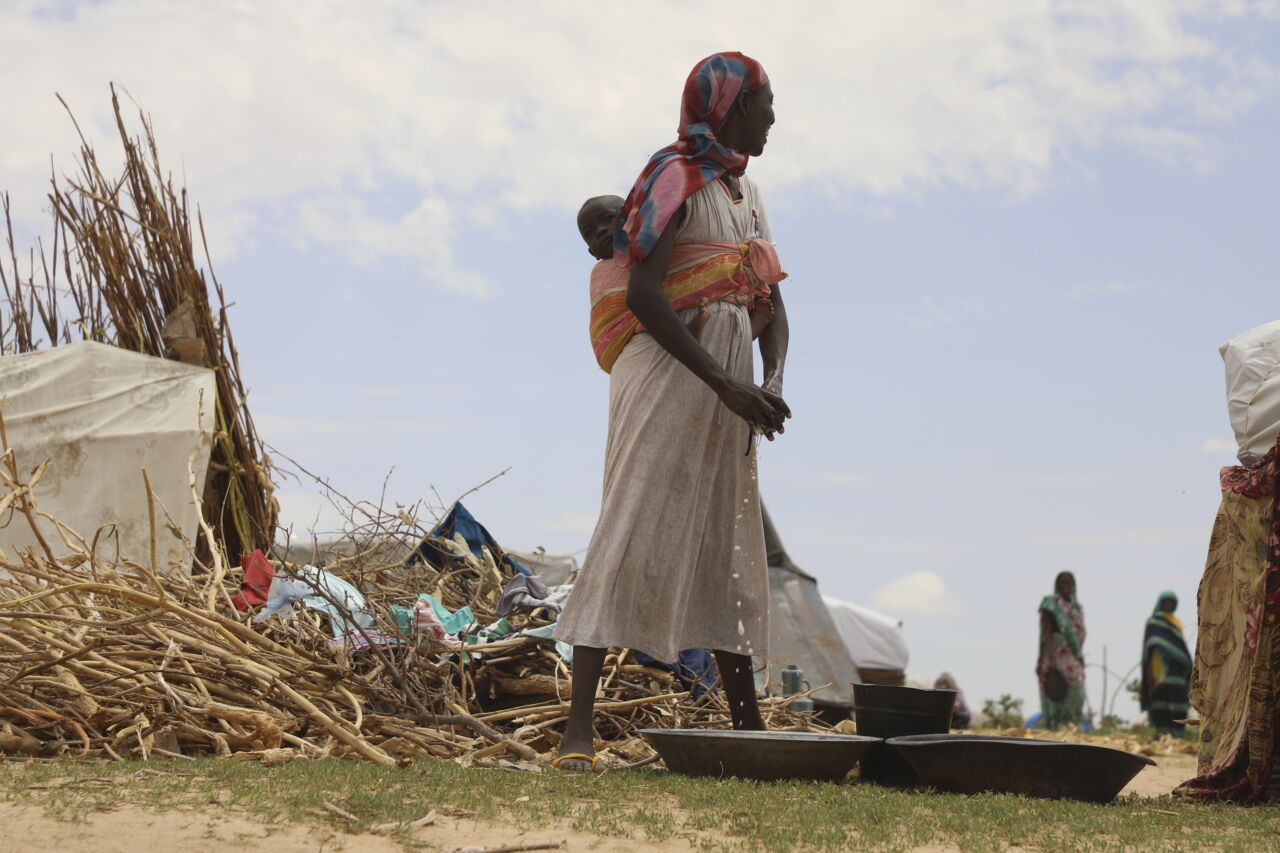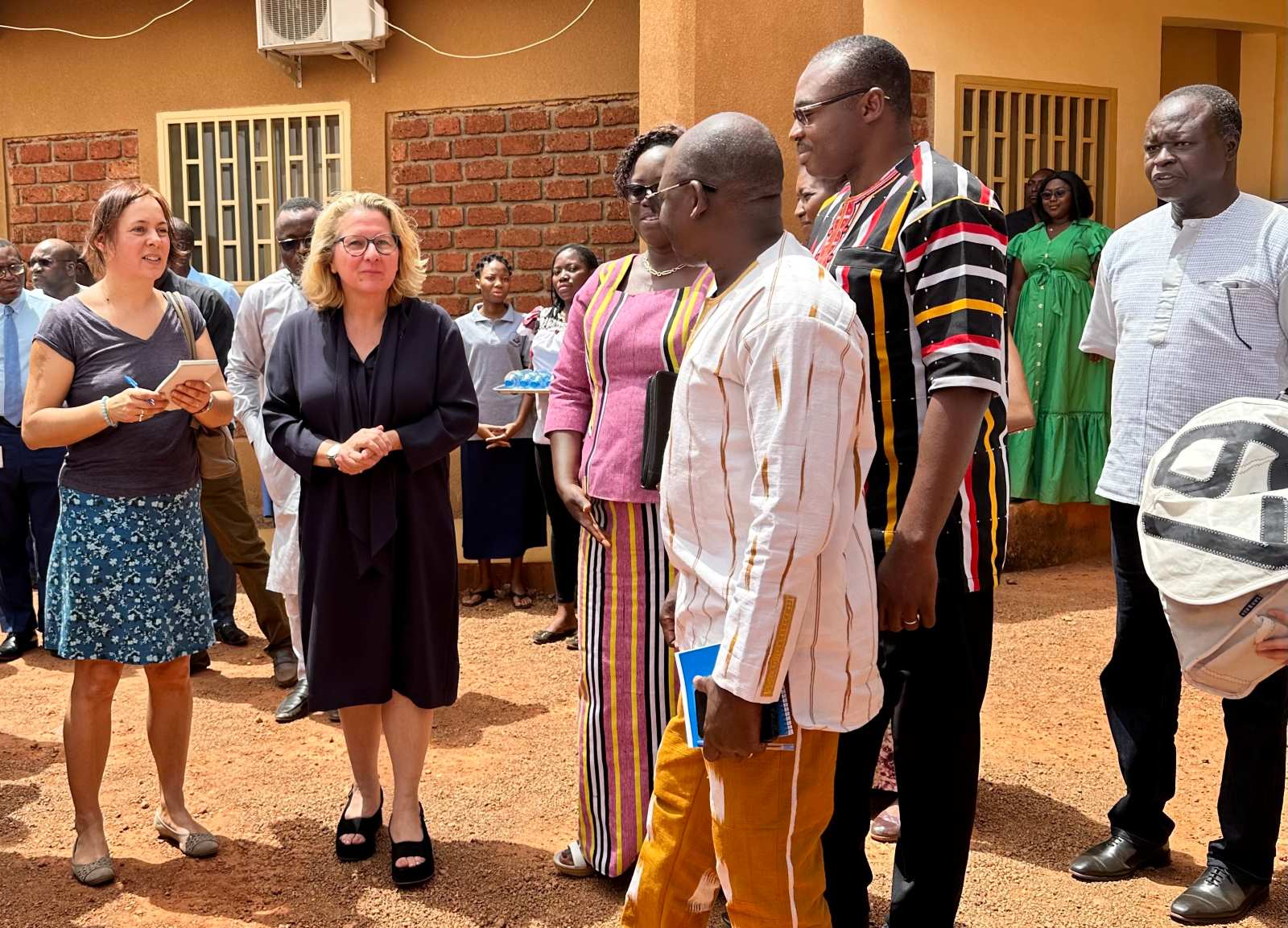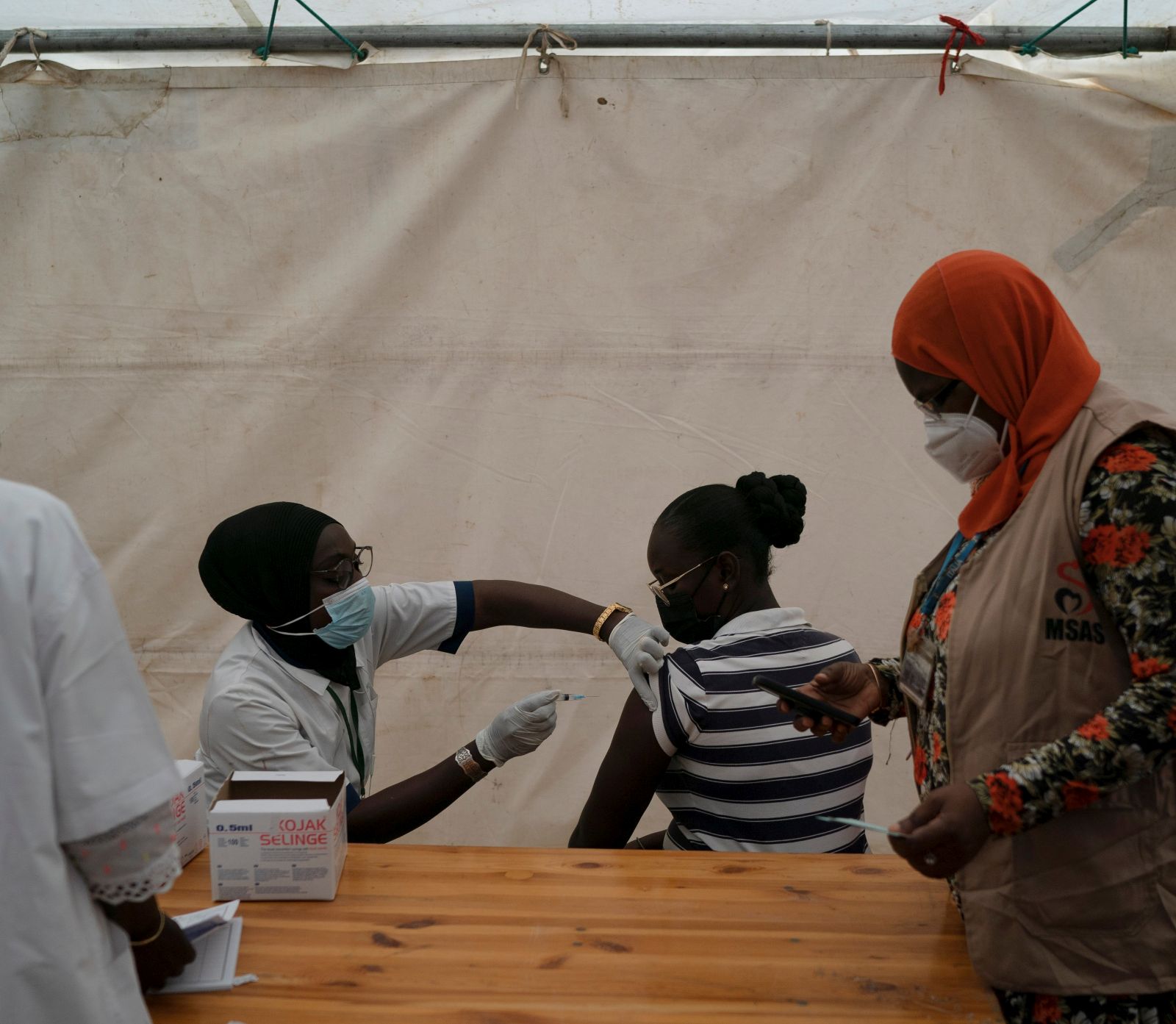Global governance
At a crossroads

Biennial ministerial summits are the World Trade Organization’s (WTO) main decision-making forum. Decisions require consensus. Since achieving consensus among more than 160 nations is difficult, the WTO did not make much progress in recent years.
The summit in Nairobi in December, however, was different. Several small, though relevant deals were made, and disagreement on the future of the Doha Development Round was made explicit. The Doha Round is the negotiation process that was started 14 years ago in Qatar. It was supposed to improve opportunities for poor countries. It is unlikely to be continued since open disagreement in a setting that requires consensus indicates the lack of a clear mandate to keep going.
On the other hand, some progress was made. For instance, it was agreed that WTO members can grant least-developed countries (LDCs) preferential market access for services for another 15 years. It has similarly been made easier to grant them preferential market access for processed goods.
Another new agreement reached in Nairobi concerns information technology (IT). Tariffs will be removed on 201 products, including high-tech semi-conductors, magnetic-resonance imaging machines and video game consoles. The goods concerned make up about 10 % of global trade, according to the International Centre for Trade and Sustainable Development, a non-governmental organisation that monitors the WTO and publishes the influential newsletter “Bridges”.
The IT agreement will make electronic goods cheaper. It may help to reduce the digital divide which separates those people who have access to computerised systems from those who do not. However, the LDCs do not play a major role in the global IT trade so the developmental impact will probably not be big.
Agriculture progress
The most important new agreement concerns agriculture. Three crucial elements are:
- Export subsidies will be eliminated by 2020, and the use of other types of export instruments, such as credit or food aid, will be limited more stringently than so far.
- There will be a safeguard mechanism allowing developing countries and emerging markets to raise tariffs temporarily in response to high food price volatility. The details must yet be agreed.
- Developing countries will be entitled to hold public stocks of farm goods for safeguarding sufficient supply at affordable prices. Permanent rules must yet be defined, but temporary rules exist and have been extended.
These issues are of great developmental relevance. Agriculture subsidies severely distort global trade. Huge, high-tech farms in rich nations benefit from government support, while smallholder farmers in poor world regions must do without. They struggle to compete. Export subsidies and other kinds of export promotion have compounded the problems. All too often, farmers in poor countries are crowded out of domestic markets and reduced to subsistence farmers, if they do not give up agriculture altogether.
The new agreement states that export subsidies will be phased out this year. There are a few exceptions, but those exceptions must end by 2020. Export credits will henceforth be limited to 18 months rather than 24 months. Advanced nations are now committed to refrain from in-kind food aid wherever it hurts local and regional markets, moreover, and the extent to which their agencies may sell food-aid supplies in order to raise funds for development projects will be limited too.
These steps are valuable. The downside, however, is that agriculture subsidies in the developed world still distort international trade. When the Doha Round was started in 2001, developing countries had expected more concessions – and sooner. What has happened since is subsidy policies have changed in the prosperous world.
The EU, for example, used to subsidise farms per produced litre of milk, bushel of wheat or kilo of pork. Now it subsidises farms according to the land they use. The more hectares a farm has, the more support it gets. Accordingly, its access to credit for major investments becomes easier too. This policy means that big farms grow ever bigger, while small farms are discontinued.
Doha disappointment
Trade negotiators from disadvantaged world regions, however, had wanted the Doha Round to improve matters for farmers in their countries. The shift from product-related to land-related subsidies in rich countries has made a difference, but not the big difference expected. Therefore, a strong sense of disappointment in regard to the Doha Round prevails among developing countries and emerging markets.
One thing the governments of developing countries and emerging markets liked about the Doha Round was that it did not include a list of issues that governments of rich nations wanted to tackle. These issues are called the Singapore issues and they include the rights of investors, competition rules and government procurement. In Doha, the developing world opposed putting these issues on the agenda in fear of losing policy space needed for catching up with established economic powers.
In order to get an agreement, the EU and the USA finally agreed to launch a round of negotiations that did not include the Singapore issues. They wanted to send a signal of global unity at the Doha summit, which took place only a few weeks after the 9/11 terror attacks. However, it soon became clear that neither the EU nor the USA were really willing to forsake these issues.
Indeed, their efforts to put them on the WTO agenda again failed, and they began to show ever growing interest in bilateral trade deals which included the Singapore issues. The most prominent bilateral deal is the Trans-Pacific Partnership (TPP) which was agreed by 12 governments last year, but must still be ratified by national legislatures. Another one is the Transatlantic Trade and Investment Partnership (TTIP) on which EU and US negotiators are still working.
Both TTP and TTIP are highly controversial. One worry is that they will not only undermine the WTO, but development-friendly bilateral trade agreements as well (see article by Theresa Krinninger or by Clara Weinhardt et al.). The reasoning is that, once the USA, EU and Japan are covered by these deals, all other nations will have to accept those rules. After all, these economies are especially important. Another worry is that TTP and TTIP may grant excessive rights to foreign investors and thus thwart national policy making (see article by Alan Robles).
Leaders in emerging markets, moreover, are fully aware of US President Barack Obama stating repeatedly that the idea of TTP is to define global rules and not leaving matters to countries like China. They resent being excluded from decision making for obvious reasons.
The most important aspect, however, is that a multilateral trade regime would serve all parties by providing comparatively simple rules for all parties involved. A host of bilateral agreements, on the contrary, leads to “spaghetti bowl” complexity, as Jagdish Bhagwati, a prominent economist, has often argued (see for instance article by Bhagwati). A complicated setting with many different rules, depending on what country exports go to, serves the business of trade lawyers, whom the poorest partners involved can hardly afford.
Where we are now
World trade is a most complex issue. Views diverge on where the WTO stands now. Joseph Stiglitz, the former chief economist of the World Bank, has expressed regret about the end of the Doha Round and blames the rich nations – in particular the USA – of egotism. According to Germany’s Federal Ministry for Economic Cooperation and Development, on the other hand, the phasing out of export subsidies for agricultural goods and easier market access for LDCs add up to meaningful progress. Both stances make sense.
The comment of the Financial Times was that it had been high time to discontinue the Doha Round. One reason it gave was that emerging markets have grown so fast in the past one and a half decades that it does not make sense to consider them developing countries anymore. Indian newspapers, on the other hand, expressed frustration. The background is that trade opportunities for LDCs have indeed improved in the past decades, whereas the outlook for most middle-income countries has not improved that much since the WTO was established in 1995.
It is interesting to consider the recent decisions from the perspective of the WTO’s self-interest. By brokering new deals, it has proven that it is still a relevant institution in spite of the Doha gridlock. Some critics had argued that only its trade-dispute settlement system, which can punish countries for not sticking to WTO rules, mattered anymore.
By agreeing to disagree in Nairobi, however, the WTO has managed to inch forward on making rules. This is what probably mattered most to Roberto Azevêdo, WTO director-general, and Amina Mohamed, who is a former WTO staff member and hosted the summit as Kenya’s foreign minister.
Hans Dembowski is editor in chief of D+C/E+Z.
euz.editor@fs-medien.de













